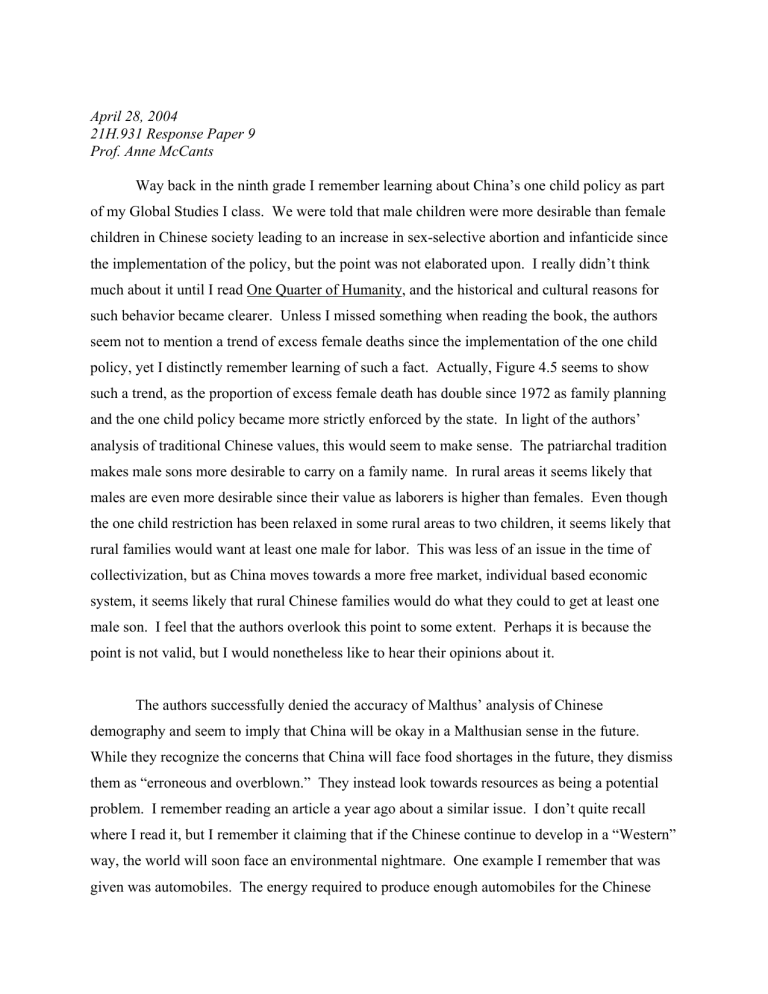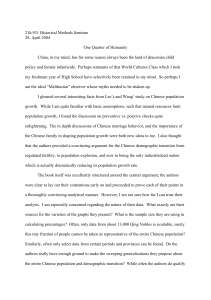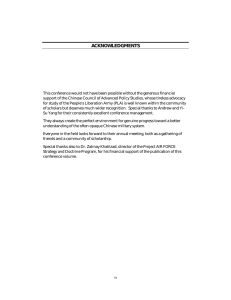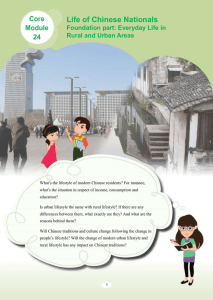April 28, 2004 21H.931 Response Paper 9 Prof. Anne McCants

April 28, 2004
21H.931 Response Paper 9
Prof. Anne McCants
Way back in the ninth grade I remember learning about China’s one child policy as part of my Global Studies I class. We were told that male children were more desirable than female children in Chinese society leading to an increase in sex-selective abortion and infanticide since the implementation of the policy, but the point was not elaborated upon. I really didn’t think much about it until I read One Quarter of Humanity, and the historical and cultural reasons for such behavior became clearer. Unless I missed something when reading the book, the authors seem not to mention a trend of excess female deaths since the implementation of the one child policy, yet I distinctly remember learning of such a fact. Actually, Figure 4.5 seems to show such a trend, as the proportion of excess female death has double since 1972 as family planning and the one child policy became more strictly enforced by the state. In light of the authors’ analysis of traditional Chinese values, this would seem to make sense. The patriarchal tradition makes male sons more desirable to carry on a family name. In rural areas it seems likely that males are even more desirable since their value as laborers is higher than females. Even though the one child restriction has been relaxed in some rural areas to two children, it seems likely that rural families would want at least one male for labor. This was less of an issue in the time of collectivization, but as China moves towards a more free market, individual based economic system, it seems likely that rural Chinese families would do what they could to get at least one male son. I feel that the authors overlook this point to some extent. Perhaps it is because the point is not valid, but I would nonetheless like to hear their opinions about it.
The authors successfully denied the accuracy of Malthus’ analysis of Chinese demography and seem to imply that China will be okay in a Malthusian sense in the future.
While they recognize the concerns that China will face food shortages in the future, they dismiss them as “erroneous and overblown.” They instead look towards resources as being a potential problem. I remember reading an article a year ago about a similar issue. I don’t quite recall where I read it, but I remember it claiming that if the Chinese continue to develop in a “Western” way, the world will soon face an environmental nightmare. One example I remember that was given was automobiles. The energy required to produce enough automobiles for the Chinese
population, the raw materials for them, and the pollution created by them would create an environmental nightmare. The conclusion of the article was that the world could not afford for the Chinese to become “Western-type” consumers. In reality, though, shouldn’t we be more concerned about ourselves? I feel that the real risk lies in the Western world, especially the
United States where people are incredibly wasteful. The trap that we need to be concerned about is more environmental than Malthusian. While population increases, technology should allow us to meet the food demands. But the other edge of that sword is that everyday we deplete our environment more and more. This depletion is what will eventually inhibit food production (or at least uncontaminated food production) in the future. This could very well be a positive check on a developed population as the vice of pollution of land, air, and water takes its toll on our natural resources.






